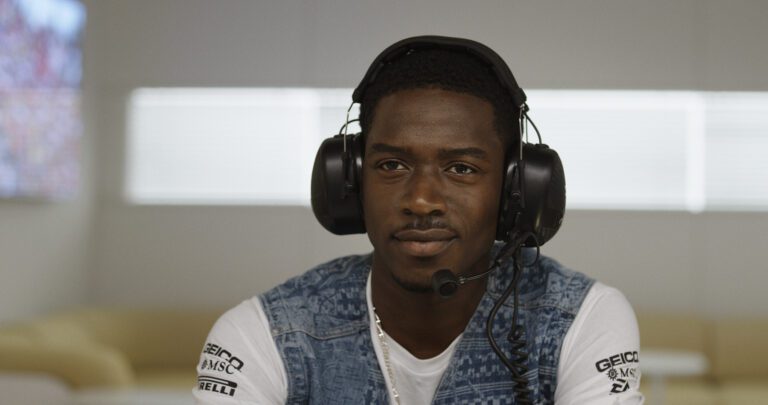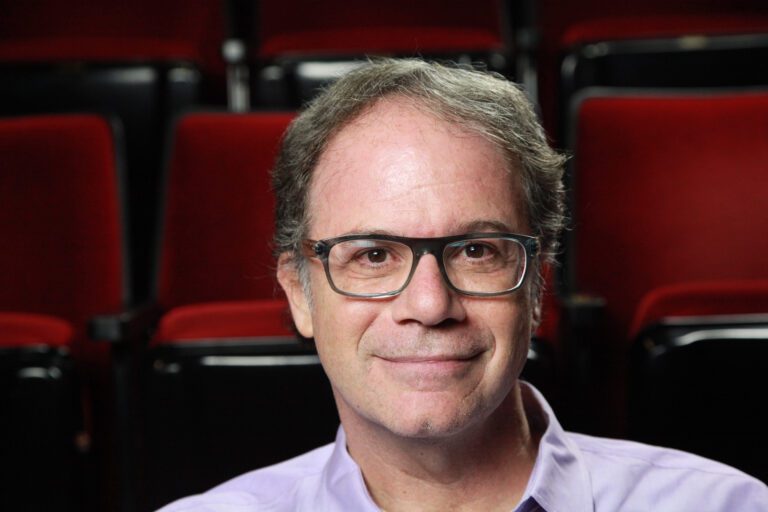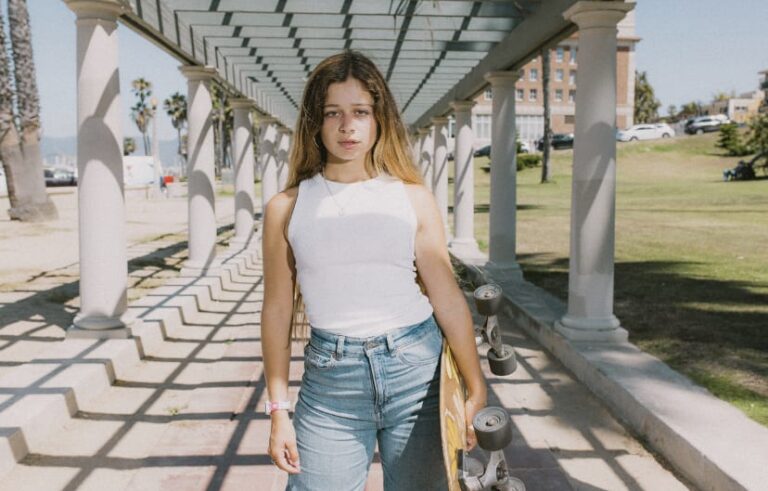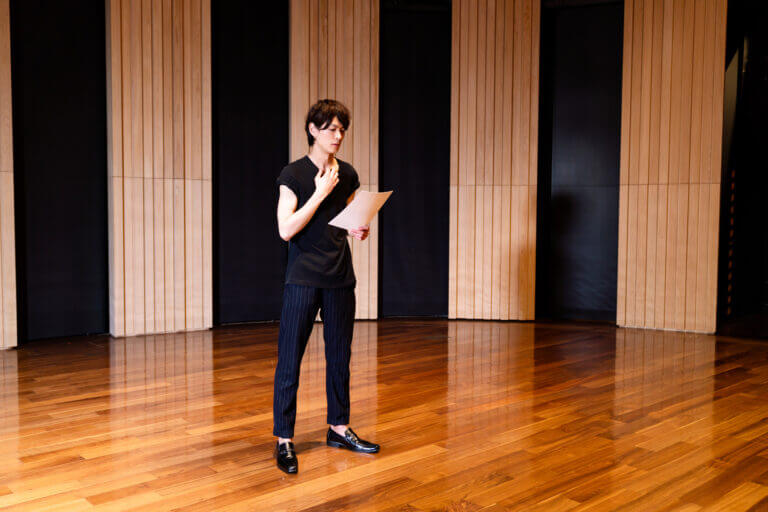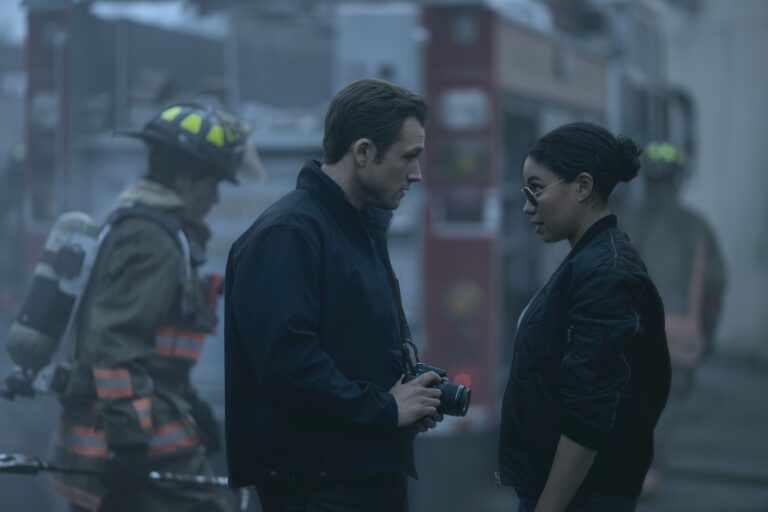It’s not an outlandish statement to suggest that Dan Bakkedahl is one of Hollywood’s most valuable comedic actors. Think about it. With one notable exception (discussed below), he has appeared in almost every great sitcom of the last 15 years.
Veep? Check. Curb Your Enthusiasm? Check. The Office? Check. Brooklyn Nine-Nine? How I Met Your Mother? Community? The Mindy Project? The Goldbergs? Party Down? Barry? Check, check, check, check, check, check and check.
Add in Jim Jeffries’ Legit, one of the great underrated shows that not nearly enough people watched (but is totally fantastic and available to stream on Hulu), and it’s the kind of career most actors would kill to have.
Why does he keep showing up over and over again in all these amazing and funny shows? It’s not just because he’s hilarious, it’s because he’s hilarious in a way that is uniquely his. He’s that rare performer who fits perfectly into any show, while also standing out by having a distinctive comedic voice.
You know him when you see him and, invariably, when you see him, you know it’s going to be good. This means his new series, Freevee’s Dinner with the Parents, should be required viewing. Episodes are now streaming. He spoke to us from his home in Los Angeles.
Over the last 15 years or so, you’ve appeared in just about every great comedy, with one major exception. How did you never get on Parks and Recreation?
I was gonna say Parks and Rec! I don’t know. I’m friends with Amy Poehler [and] Nick Offerman and I are pals from when we did theater together in Chicago. I’ve worked for the producers and directors and the showrunners on that show before, I don’t know how it just never happened.
I want to talk to you about one of my favorite shows you did, Legit …
Well, you really stepped in it now, because I make it a point that, if someone brings up Legit, that’s all we’re talking about.
Okay, but let’s come back to it. First, I want to know how you got into acting in the first place.
I’m the youngest of seven, so I immediately was the mascot of the family. The little dancing monkey. Plus, I had a grandfather and a father who were both huge personalities. You know, life of the party kind of guys. It was kind of in me.
In college, I was doing theater because I knew I could pass the classes, and the requisite was, to “get a diploma.” I was like, “Well, what if I get one in theater?” “I don’t care. Just get a diploma.”
I loved it. It was just a thing I was naturally drawn to but I always thought, “I can’t be an actor. It’s idiotic. You’re better off buying two lottery tickets every day and counting on that to pay off.” But when I was in college, I had a teacher named Michael Ritchie — not the Hollywood director. He was a teacher at Florida State University and a great actor and an amazing person. A dear friend today, even. I was doing The Glass Menagerie, he was directing it, and my parents came to see the show. He told them, “You know if your son actually commits himself to this, he could make a living at it.” My parents told me and that’s all I needed. Somebody to say, “I believe you can do this.”
I think that’s what most people need. The one thing to make it okay to pursue it. Where’d you go from there?
I toured with a small theatre company. The Southeastern Theatre Conference is a big gathering of theaters that hire actors. They do them all over the place, but you audition for 100 theaters all at once in this little theater in Savannah, Georgia, and then they decide who they’re going to populate their companies with.
I got a job with the Repertory Theater of America out of Rockport, Texas. We got in a van and drove all over the country for 10 months performing repertory theater. We had three different shows that we did: Last of the Red Hot Lovers, Play It Again, Sam, and It Had to Be You. We went through Chicago, and one of the guys who was an alumnus of this theater said we should go to Second City. We went in to watch the show, and it was terrible. I went, “I can do this.” Turns out, that was a one-off bad show. They were doing great work at the time. But I decided to move to Chicago.
I hear Second City is super easy to get into.
(Laughs) I asked people, “How do you get in over there?” And they were like, “Oh, forget it. It’s 2,000 people waiting for six jobs.” I was like, “That’s not the question I asked. How does one of the 2,000 get that job?”
There’s an audition process. It helps if you’re taking improv classes, so I started taking improv classes at a place called the Players Workshop, which was kind of an offshoot of the Second City from way back. Then I started taking classes at what was Improv Olympics at the time, which later became IO. Then I started taking classes at the Second City Training Center. I got to know people and I immediately realized, “Oh man, I’m going to go through the system quickly, then I’m going to be standing at the doorstep of are they going to hire me?”
I did not want to tour again. I’d just gotten done touring for 10 months. I wasn’t interested in it, but I knew that you’re gonna have to, so I auditioned and got the touring company job at Second City. From there, I got The Daily Show, and the rest is history.
Is it, though? Seems like a lot had to happen to go from The Daily Show to here.
At The Daily Show, I felt like I was adrift. I didn’t know who I was as a performer as an individual because I played with ensembles, and ensemble by definition is: we’re equal. This was definitely not the case on that show.
There’s a guy whose name is on the title of the show, right? Lesson number one for me was, that we’re not all equals. Jon Stewart’s the star of the show. It’s his show and you’re here to help. But leaving there, I swore to myself I would never be in that position again where I would go, “What do you want me to do?” I decided from now on, when the coach says jump, I don’t say, “How high?” I jump as high as I possibly can, and then you tell me, “Jump a little lower.” So when I got Legit …
Okay, now we’re back to it. I knew you a little before Legit. I’d seen you, but it feels like that’s a line of demarcation in your career. Everything after that, you had more of a distinctive comedy voice.
It’s funny because Jim Jeffries made it so easy, and so welcoming. We shot the pilot in Portland, Oregon, and the first day we were there, he invited me to lunch. That doesn’t happen on a shoot, where the star, executive producer, writer and creator says, “Let’s go to lunch so that you feel welcome and I can thank you for coming to Portland to shoot my pilot.” He immediately made me comfortable.
It took a year for us to get picked up, so before we even shot the second episode, I went and did Veep. My first entrance was when I walked into a room with Julia Louis Dreyfus. I said to myself, “You can’t do what you did with Jon Stewart. Don’t treat her like she’s your pal. She’s the boss. She’s the Veep. Right?” Well, she’s not that way. I immediately took my balls out and went in guns blazing and just went for the throat.
I’m in a hotel room, and she says it’s the Presidential Suite. And I improvised, “Vice Presidential, anyway.” And her reaction, as a sketch and improv artist who came from Chicago herself, was wonderful. She loved it. We built off that together, and that’s really where my competence as an actor aligned with my belief in myself as an actor if that makes sense. I always knew I could do it, I just couldn’t manifest it. But in that room with her I decided I’m just not going to make the mistake I made on The Daily Show, I’m going to make a decision, make a choice and see what happens. Plus, I had the confidence of knowing I had a series, that I didn’t have to kill this.
So it wasn’t Legit, it was Veep where you really found your style and your voice?
My experience on The Daily Show was when it was great, winning Emmys when I was there, but it wasn’t because of anything I was doing. I never really got a chance to do what I do. Part of that was my own fear. You mature into it when you’re actually ready for it. I only know this in retrospect. The rearview mirror teaches me that I wasn’t supposed to excel at The Daily Show. I wasn’t supposed to kill it at Second City. All of this was supposed to happen so that when I got in that hotel room with Julia, I didn’t go, “Well, I’m hot shit.” I went, “I just gotta do the best I possibly can. I gotta serve her in this moment and give her the best bits I can give her to try to accelerate the comedy chops of this scene,” and as a result, my entire life changed.
Seems like Legit was the perfect thing for you to be doing right after that, then, huh?
Nobody was doing anything like that. It was filthy, but it was beautiful. Jim Jeffries is a tremendous person, and he would say inappropriate and wild things on stage, but there was always a point to what Jim had to say, and I felt like that show gave him an opportunity to say something really powerful, really cool. Like, you can be the hip, cool, standup comedian, but you’ve still got problems. And you can be the big brother who can’t seem to get his shit together because he’s a drunk, but he still has a heart. He’s still worth something. You can be the other brother who has muscular dystrophy, confined to a wheelchair, but we can give you a life. You can be his roommate at that home, who has been abandoned, and you’re still valuable. There’s still a whole life out there for you to live. It was a really cool thing.
One of the things I loved about it was that you, Jim, DJ Qualls, and Mindy Sterling, all looked like you were having a blast. There was a joy that translated to the viewer, y’know?
It’s kind of an outlier when it comes to comedy. Once again, I was used to people competing for the spotlight and lines and jokes. Stuff like, you say something funny, and someone higher up the call sheet is going to the script supervisor, and the next thing you know, he’s gonna say that thing I just improvised.
It’s really weird, because we’re all going to be on the same show, and a rising tide lifts all boats, but okay. You’ll look great on a mediocre show, as opposed to allowing me to be great, too, and then we’ll all look great. But I love people like Julia and people like Jim. They get it.
Let’s talk about Dinner with the Parents. What drew you to it?
Well, I’m working with Carol Kane and Michaela Watkins, and that’s anyone’s dream. Jon Glaser is a ridiculously talented guy who plays the neighbor. Hilarious. Then the two sons are Daniel Thrasher, who’s a huge YouTube star, a really brilliant musician and comedic actor, and Henry Hall, who’s Julia’s son. He’s like a six-one, 200-pound Woody Allen. It’s his energy.
The idea behind it is, the boys come home to see their parents every Friday night for dinner. The show is farcical and ridiculous, but for the first time in a long time, my family and I can sit down and watch a show together.
It somehow seems odd to me that you’re doing something that’s kind of sweet and wholesome.
Oh, it’s filthy, too. There’s plenty of fornicating and getting things stuck where they shouldn’t be, and plenty of ribald humor, but Life in Pieces was the last job I did where I could say, “Hey, guys, let’s watch this together.” And I love that idea. Because my kids are getting older and they’re not interested in hanging out with dad. But maybe, if I’m on TV, maybe they’ll watch it.
Casting directors use Casting Networks every day to discover people like you. Sign up or log in today to get one step closer to your next role.
You may also like:


